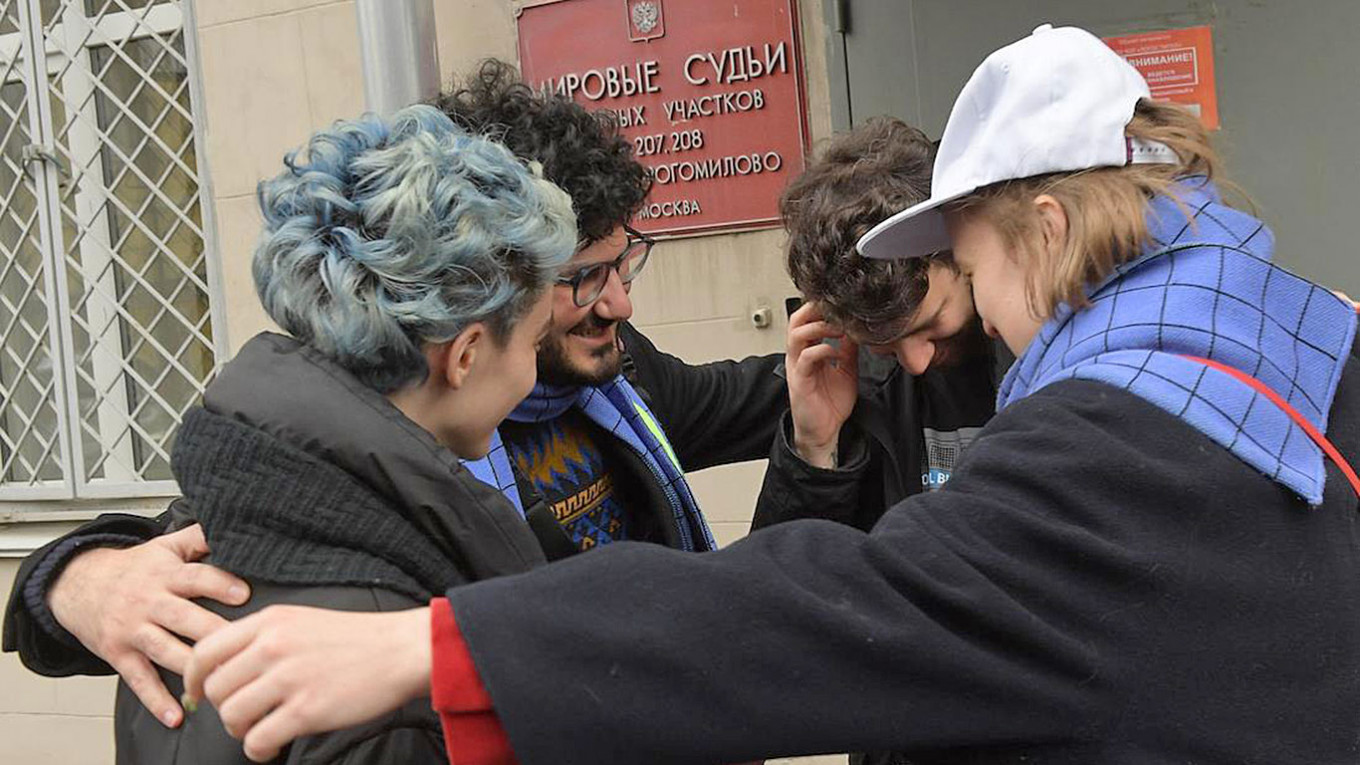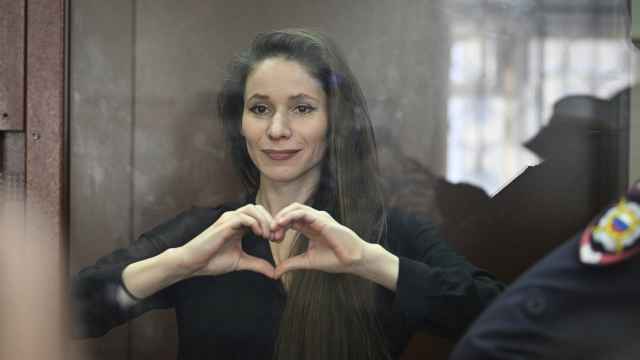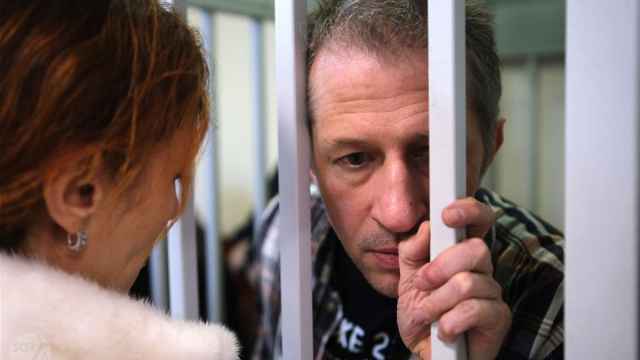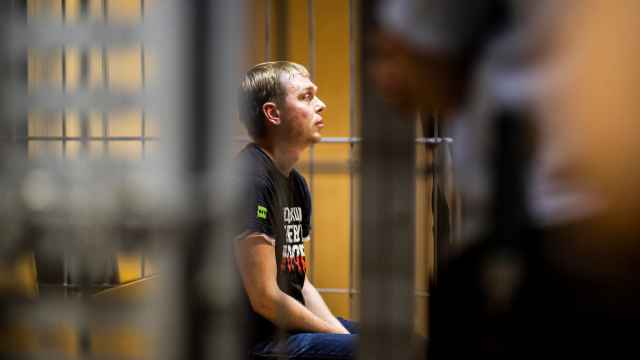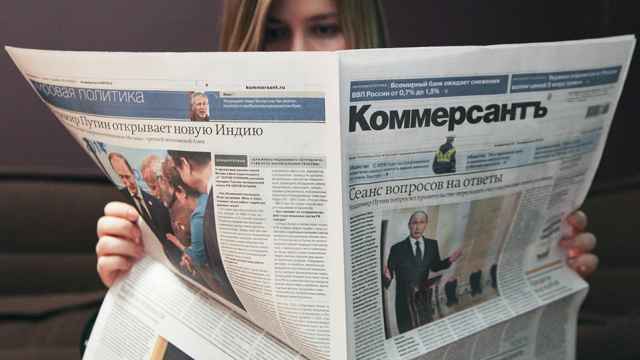A Moscow court sentenced the four ex-editors of independent student news site DOXA to two years of correctional labor Tuesday, ending a year-long trial over a video in which they defended young Russians' freedom of assembly.
Armen Aramyan, Alla Gutnikova, Natasha Tyshkevich and Vladimir Metelkin were in April 2021 charged with inciting minors to illegally protest over the video, which was published amid nationwide protests in support of jailed Kremlin critic Alexei Navalny.
Authorities accused them of incitement for explaining that students cannot be expelled for attending the pro-Navalny protests and should not be afraid of voicing their opinions. DOXA says it had deleted the video at the authorities’ request and maintains that it contained no calls to unauthorized activity.
The Dorogomilovo court on Tuesday found Aramyan, Gutnikova, Tyshkevich and Metelkin guilty and sentenced them to two years of correctional labor.
They have also been handed a three-year ban on administering websites.
DOXA said around 100 of its supporters gathered outside the courthouse to await the verdict. At least two have been detained.
Tyshkevich was brought to court from a detention center where she was serving a 15-day administrative sentence over a Ukrainian trident she posted on social media in 2017.
State prosecutors on April 1 requested the court to sentence the editors to two years of correctional labor each.
Individuals sentenced to correctional labor must pay the state part of their wages or, if they are unemployed, be assigned work by Russia’s Federal Prison Service.
In his closing statement to court translated by the Meduza news website, ex-chief editor Aramyan expressed defiance against Russia’s “state system of terror against the youth” and spoke out against the war in Ukraine.
“Now that our state has launched the so-called ‘special operation,’ […] it is now a genuine dictatorship. It is a war criminal,” he said on April 1.
DOXA was founded in 2017 by students at Moscow’s liberal-leaning Higher School of Economics (HSE) and continued to operate after HSE revoked its status as a student organization in 2019. The outlet became known for investigations into systemic sexual harassment at top Russian universities and politically motivated firings at HSE.
Since being charged last spring, all four defendants had been bound by a court order limiting their ability to leave their homes, use their phones and access the internet to two hours a day.
Days after Russia launched the invasion of Ukraine in February 2022, authorities blocked DOXA’s website over its refusal to take down an explainer dispelling Russian myths about the ongoing war.
The four editors officially stepped down a week later.
A Message from The Moscow Times:
Dear readers,
We are facing unprecedented challenges. Russia's Prosecutor General's Office has designated The Moscow Times as an "undesirable" organization, criminalizing our work and putting our staff at risk of prosecution. This follows our earlier unjust labeling as a "foreign agent."
These actions are direct attempts to silence independent journalism in Russia. The authorities claim our work "discredits the decisions of the Russian leadership." We see things differently: we strive to provide accurate, unbiased reporting on Russia.
We, the journalists of The Moscow Times, refuse to be silenced. But to continue our work, we need your help.
Your support, no matter how small, makes a world of difference. If you can, please support us monthly starting from just $2. It's quick to set up, and every contribution makes a significant impact.
By supporting The Moscow Times, you're defending open, independent journalism in the face of repression. Thank you for standing with us.
Remind me later.


